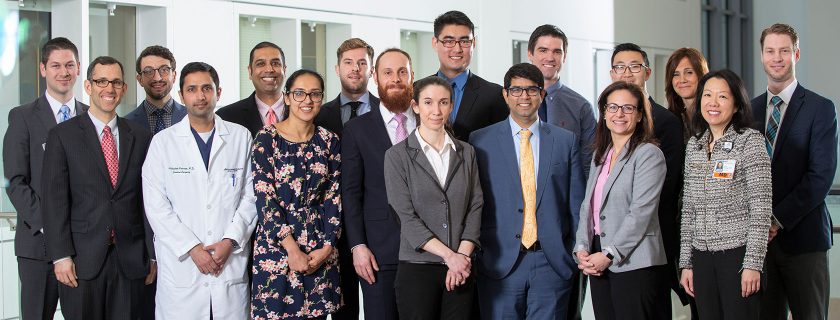Read article – An article about end-of-life care and final wishes mentions that according to the Dartmouth Atlas of Health Care, more than 80 percent of patients with chronic diseases say they want to avoid hospitalization and intensive care when they are dying, but only one in three adults has those wishes explained.
Articles by: Geisel Communications
At the Hospitals: Dartmouth Med Students Receive Fellowships for LGBTQ Mentor Program – Valley News
Read article – An article about two first-year students at the Geisel School of Medicine who received a Schweitzer Fellowship to support their mentoring program that positively influences wellness for LGBTQ and questioning youth of Sullivan County participating in Rural Outright, a program of TLC Family Resource Center, quotes one of the students. “By collaborating with Rural Outright, we will expand support services available to queer youth to address the lack of LGBTQ+ mentoring programs currently available as they explore issues related to gender and sexuality,” said Jacqueline Gresham MED ’21.
Why the Healthcare Industry Could Face an Ultimatum: Keep Hiring or Lower Costs – Healthcare Finance News
Read article – Continued coverage of a report co-written by Jonathan Skinner, the James O. Freedman Presidential Professor in Economics, professor of community and family medicine, and of the Dartmouth Institute for Health Policy and Clinical Practice, in which he and his coauthor argue that healthcare costs are unlikely to decrease unless the industry also reduces the growth in employment, despite industry-wide efforts to cut spending.
The Next Generation of Surgeon Investigators: Surgical Trainees Answer Tough Questions Facing Surgeons and Patients
How do we define “competence” in surgical consultation? What factors lead to overuse of invasive screening tests in low-risk patients with bladder cancer? These were some of the questions asked by the fifteen young surgical investigators from the Geisel School of Medicine and Dartmouth-Hitchcock Medical Center at the sixth annual STARS (Surgical Trainees Advancing Research Symposium) event on April 12-13. Sponsored by the Department of Surgery, the two-day event promotes interest in surgical health services research among young and aspiring surgeons through a spirited but supportive competition.
Slowing Employment Key to Reducing Healthcare Costs, Experts Argue – RevCycleIntelligence.com
Read article – Continued coverage of a report co-written by Jonathan Skinner, the James O. Freedman Presidential Professor in Economics, professor of community and family medicine, and of the Dartmouth Institute for Health Policy and Clinical Practice, in which he and his co-author argue that healthcare costs are unlikely to decrease unless the industry also reduces the growth in employment, despite industry-wide efforts to cut spending.
ACOs Don’t Always Reap the Expected Financial Reward. Place-Based Care Could Help – Fierce Healthcare
Read article – An article about a new opinion piece in the Journal of the American Medical Association that argues taking responsibility for patients based on geographic regions could help providers better generate financial savings. Mentions that two of the three piece’s authors are from the Dartmouth Institute for Health Policy and Clinical Practice: Adam Briggs, visiting scientist, and Elliott Fisher, director.
Slower Healthcare Employment Growth is Necessary to Curb Costs, Researchers Say – Fierce Healthcare
Read article – An article about curbing healthcare costs at the expense of job growth in the sector quotes an op-ed co-written by Jonathan Skinner, the James O. Freedman Presidential Professor in Economics, professor of community and family medicine, and of the Dartmouth Institute for Health Policy and Clinical Practice. “The challenge of job gains in the healthcare sector is higher healthcare costs, job loss in other sectors … and stagnant take-home pay for those who manage to keep their jobs,” the authors wrote. (Picked up by Becker’s Hospital Review.)
Are Doctors Choosing Wisely Yet? – Healthcare Analytics News
Read article – Features research conducted by Alexander Mainor, a research project coordinator at the Dartmouth Institute for Health Policy and Clinical Practice; and Carrie Colla, associate professor of the Dartmouth Institute for Health Policy and Clinical Practice, for the Choosing Wisely campaign, whose goal it is to raise awareness among physicians and patients about avoiding unnecessary tests, treatments, and procedures. “It takes an average of 17 years for new information to actually reach clinical practice,” said Mainor.
Democrat Enters Race For Newport-Area Seat – Valley News
Read article – A feature story on Jenn Alford-Teaster, a geospatial research project director in the department of biomedical data science, quotes Alford-Teaster about her announcement earlier this week to run as a Democrat for the New Hampshire Senate. “My focus will be providing economic opportunity for people in rural communities,” said Alford-Teaster.
Caring for Babies With Opioid Withdrawal – AAMC News
Read article – As the number of infants with opioid withdrawal rises, academic medical centers are developing promising new methods to treat these infants and support their mothers. In 2015 and 2016, nearly 10% of babies born at the Children’s Hospital at Dartmouth-Hitchcock in New Hampshire were at risk for opioid withdrawal. Like at Yale Children’s, leaders there decided to promote more connection between moms and babies. Physicians began allowing infants to remain in their mothers’ rooms for the full hospital stay in 2014, explains Alison V. Holmes, MD, MPH, pediatric hospitalist and associate professor of pediatrics at Geisel School of Medicine at Dartmouth. The result was less use of medication, fewer withdrawal symptoms, and shorter hospital stays.
